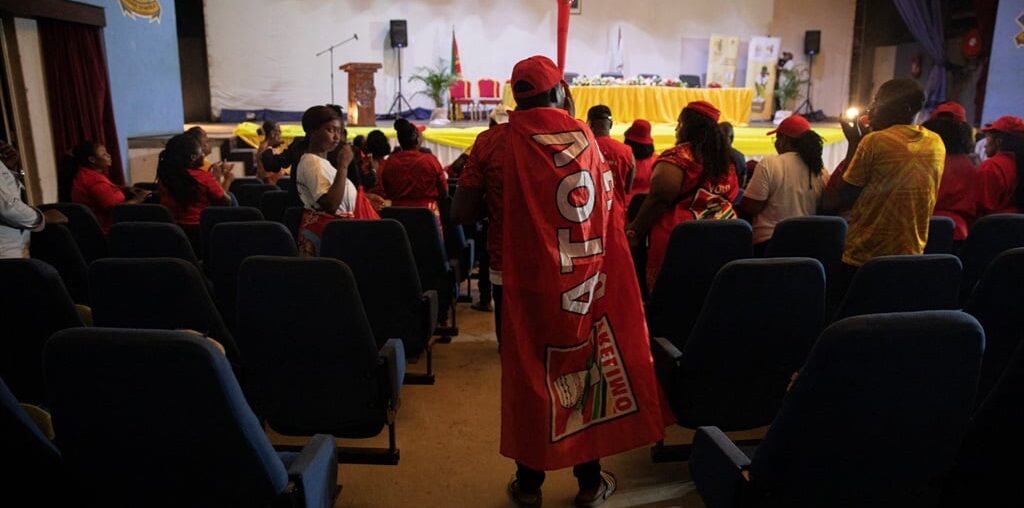
A supporter of the Mozambican Liberation Front (Frelimo) celebrates while waiting for the preliminary results in the Municipality of Matola, in Maputo, on 13 October 2024. (ALFREDO ZUNIGA / AFP)
- Election observers say Mozambicans voted peacefully, even in the north where Islamic insurgents operate.
- Results point to the expected Frelimo victory.
- There are still suspicions about elections, though, and observers called for calm as results come in.
Election observer missions deployed in Mozambique say the 10 October polls were generally peaceful, and have urged Mozambicans to remain calm as results trickle in.
The full results are expected to take another week, but initial indications are that Frelimo will claim its expected overwhelming majority.
Late on Sunday, the Mozambique Electoral Commission (CNE) announced results for Maputo, saying Frelimo’s Daniel Chapo had secured 54% of the vote. Chapo also led in other areas announced on Monday, such as Tete province.
The Commonwealth Observer Group (COG) pleaded for calm as results came through.
“As the results process continues to progress to its finalisation, we call upon all political party leaders and their supporters to continue to show restraint and magnanimity and to continue to uphold principles of peace and tranquillity, and to prioritise national unity and stability.
“We hope that Mozambique will continue to draw on lessons that have been learned from the past and that successive elections will be an improvement on the previous one,” said COG’s chairperson, former prime minister of Saint Lucia Kenny Anthony.
The Southern African Development Community (SADC) election observer mission to Mozambique said the polls had met SADC’s expectations.
In his address to the media, head of the mission and former president of Zanzibar Amani Abeid Karume said the elections “adhered to the principles and guidelines of SADC’s democratic elections, emphasising rights, freedom, equality, and transparency”.
“The mission was heartened by the patience and resilience of the people of Cabo Delgado Province, who turned out to vote despite the terrorist threat in some of the affected districts,” he said.
Cabo Delgado is protected by the Rwanda Defence Force (RDF) and Tanzanian forces who are there under separate bilateral agreements.
In July, the RDF extended its reach to areas previously protected by the SADC standby force, which withdrew after three years.
The smooth voting in Cabo Delgado was a positive development for SADC, considering that in December last year, the Democratic Republic of Congo failed to hold elections in areas affected by conflicts.
The European Union Election Observation Mission (EU EOM) deployed 179 observers, the bloc’s biggest deployment ever to any election in Africa.
Laura Ballarín, chief observer of the EU EOM, also had positive reviews about the voting process.
“People voted calmly, and procedures were mostly followed during voting and during the campaign fundamental freedoms were generally respected,” she said.
But in the past 15 years, there have been doubts about elections in Mozambique, particularly transparency.
Ballarín said the historical suspicions lingered on.
“There was a notable lack of confidence in the reliability of the electoral register and on the independence of the electoral bodies,” she said.
The EU EOM also raised concern that opposition parties expressed a lack of confidence in the “impartiality and independence” of the electoral body and their general mistrust of public institutions such as the Constitutional Council.
The News24 Africa Desk is supported by the Hanns Seidel Foundation. The stories produced through the Africa Desk and the opinions and statements that may be contained herein do not reflect those of the Hanns Seidel Foundation.

